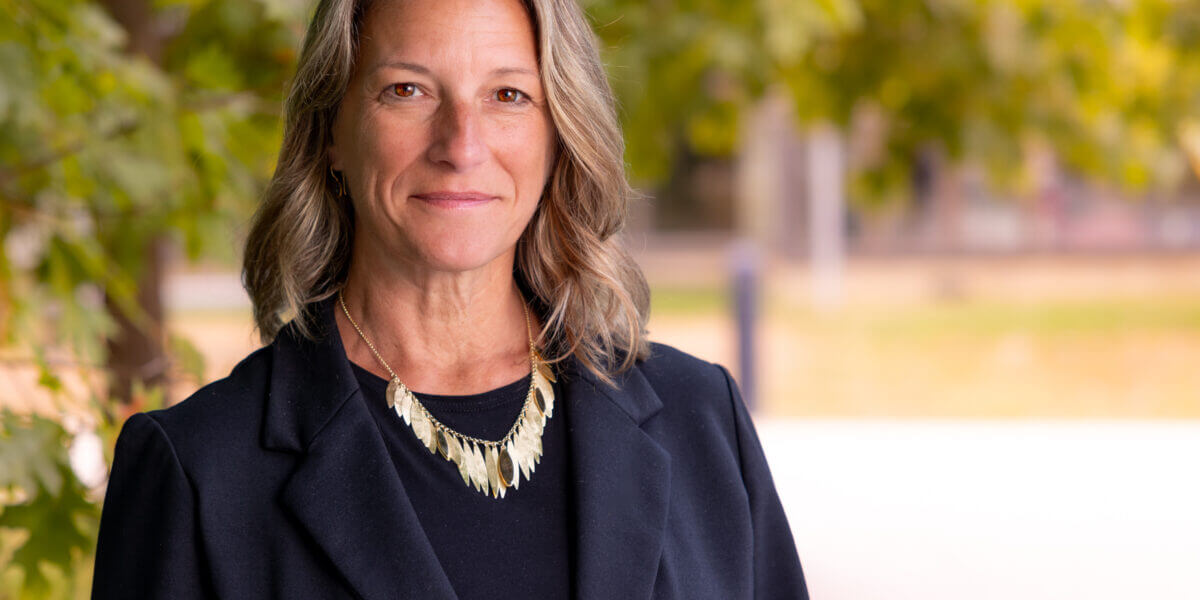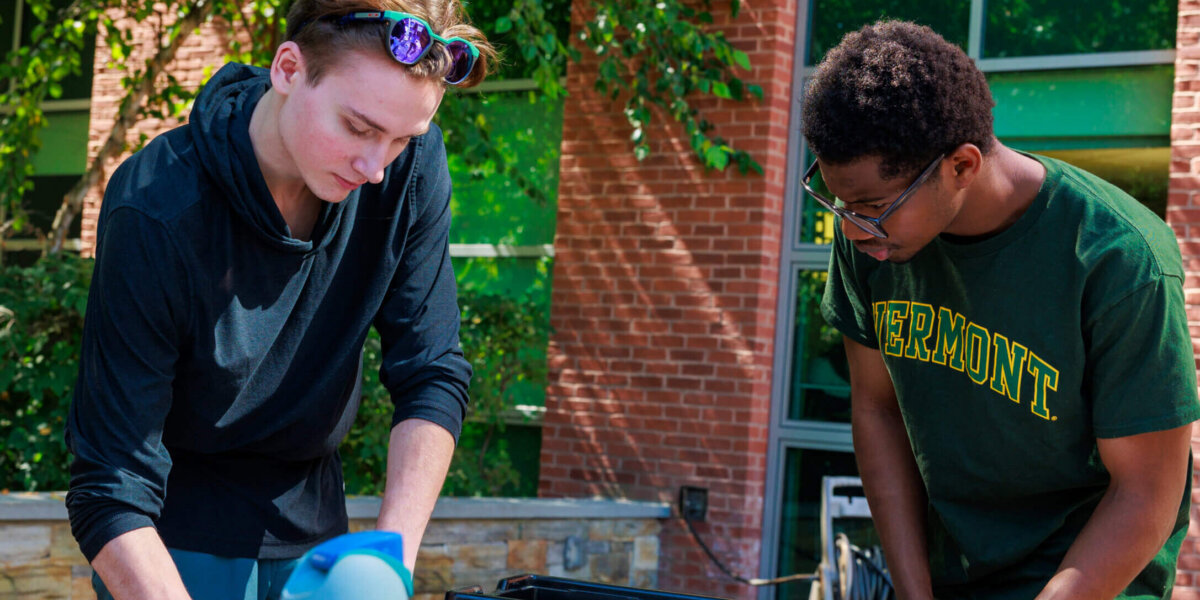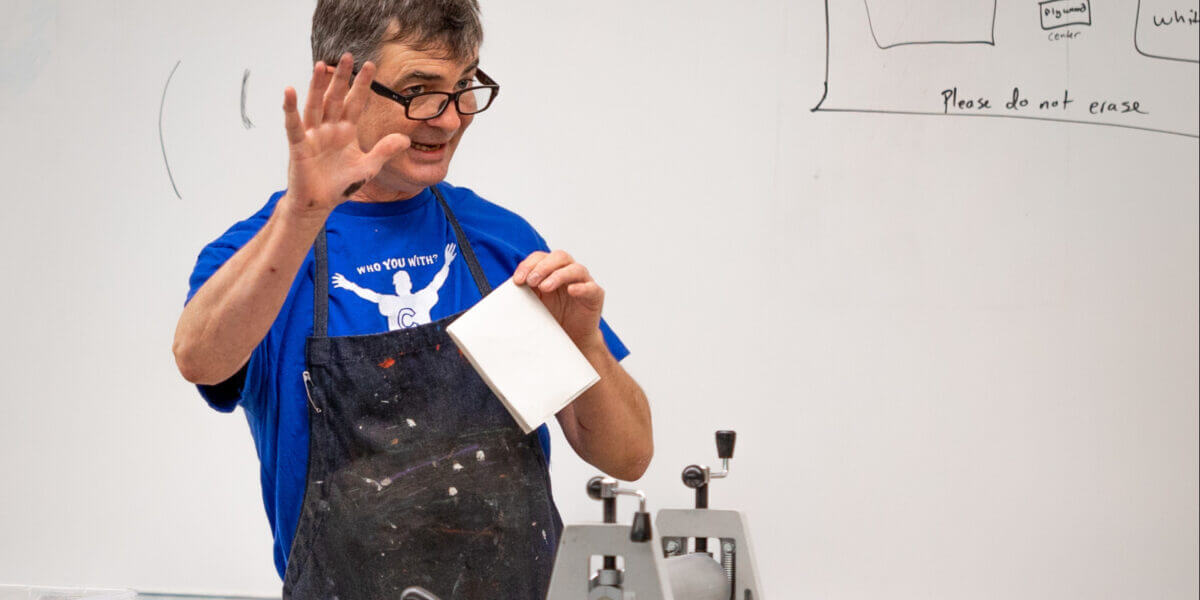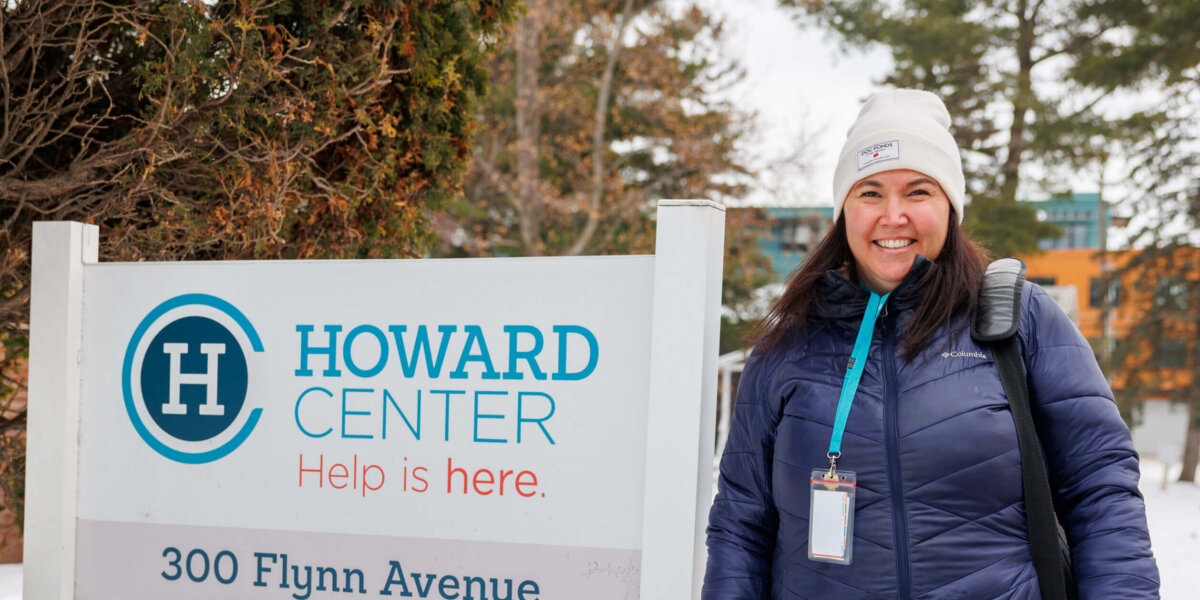CCV faculty member Virginia Merriam loves teaching because she loves supporting students. “I’ve always been drawn to teaching because I think it’s a way to help people really figure out what they want to do with their life, and help people gain tools so that they can be the most successful,” she said.
One way she helps students gain those tools is by building real-life experiences into her human services courses. Whether through hosting a guest speaker, conducting an informational interview, or participating in a job shadow, she believes it’s critical for students to interact with working professionals. “It’s real-life learning, and it’s so important having students be able to meet other people that are working specifically in the field. It gives students the opportunity to have a contact, to get firsthand experience, to be able to ask the questions: what are the hard parts? What are the rewarding parts? What are the things I need to think about as I’m developing my educational plan?”
Work-based learning opportunities are woven into the fabric of a CCV education. In partnership with the J. Warren & Lois McClure Foundation, a supporting organization of the Vermont Community Foundation, CCV is fortifying the link between classes and careers.
Staffing for career services has evolved from three part-time career consultants into a full-time coordinator of career services position, which then became a manager of career learning role. The College has now established a director-level position, underscoring the increased visibility, significance, and institutional commitment to career development.
In 2021, CCV received funding through a four-year grant from the McClure Foundation to support the integration of career learning opportunities into CCV courses. Through this grant, essential learning objectives emphasizing career exploration and work-based learning were approved and added to all introductory courses across all CCV program areas.
Robert Kirk teaches art and design courses, and like Virginia Merriam, his curriculum includes informational interviews with working professionals. In addition to practical tips and networking, students gain something even more important from these conversations: confidence. “I think [students] mostly come back feeling encouraged,” says Kirk. “That’s a really big part of it. Because there’s that point as a student where it’s like ‘can I really get into the creative profession?’ Not only do they hear the story of the person, they hear the encouragement of ‘you can do this,’ and they kind of get insight into the path that they could take.”
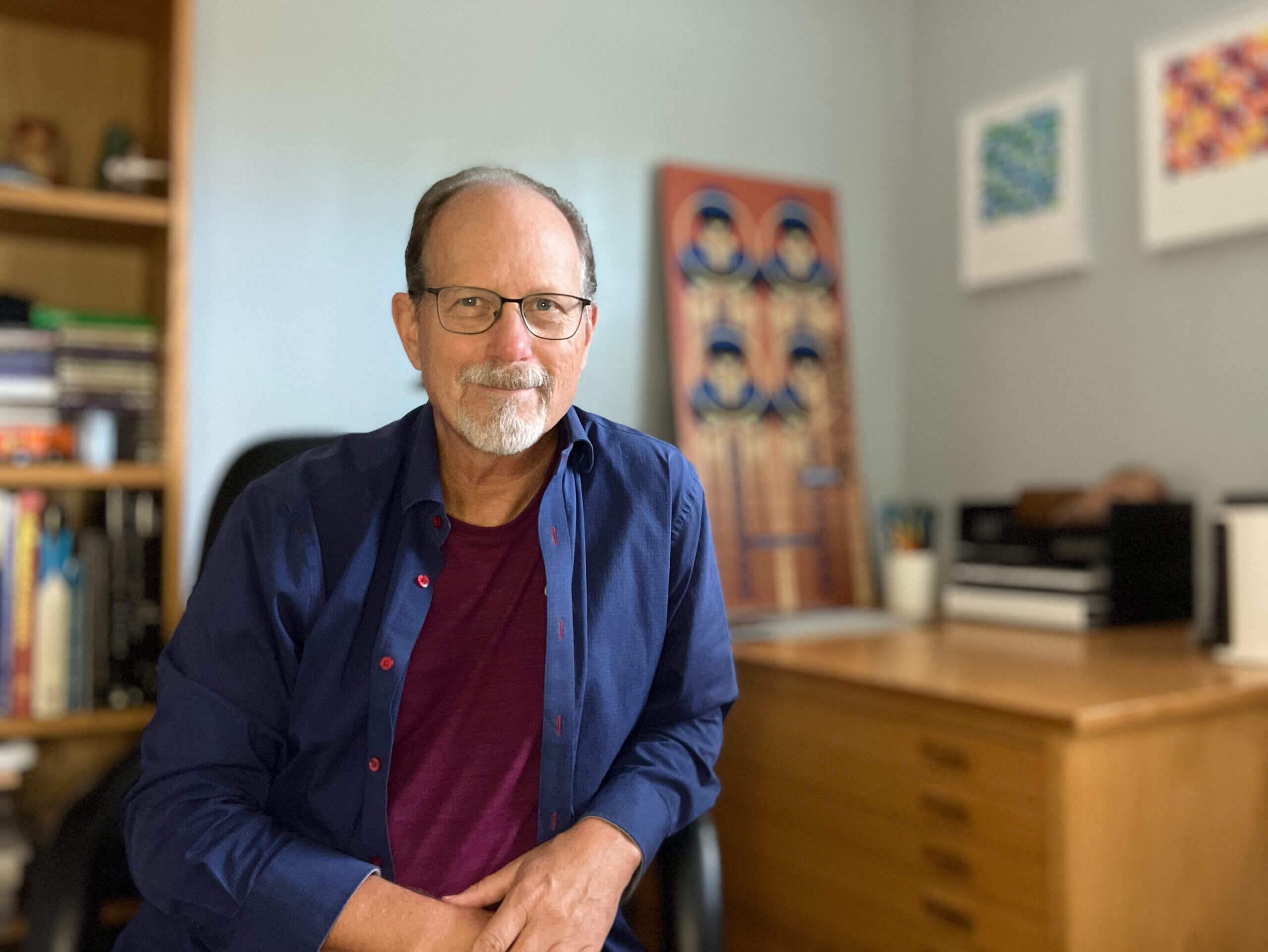
“One of my favorite responses was a student going into fine arts who had an informational interview with an installation artist…I think it changed her life because she got connected with this person that had the same values, the same interests, the same goals,” Kirk said. The student shared that “I keep Susan’s words with me, helping me create, helping me question, and helping me move into the future.”
Kirk also guides students through small group community-based projects. For example, students might work with an environmental non-profit to design logos and branding that supports their communications efforts. Sometimes these projects have unexpected bonuses, like a student who was hired to paint a mural in an office building. “It opened up an opportunity to do real work—that’s the ideal,” said Kirk.
In her criminal justice classes, veteran faculty member Anne Buttimer has always incorporated experiential learning opportunities. One of these, pre-Covid, was a ride-along with local police, which often had a profound impact. “I had one student who was more interested in a career in courts, who said ‘I don’t want to do this police ride-along. I am terrified.’” But Buttimer encouraged the student to at least try it. “She came to me as she was handing in her paper [about the experience] and she said ‘this is the best thing I’ve ever done. I learned so much about myself. I don’t want to work in the courts. I’m going to be a St. Johnsbury police officer.’”
“I absolutely believe that part of a community college education is imparting the skills that people will need to join a professional workforce and to succeed at it,” Buttimer said. She also spends time on the nuts and bolts of the job application process. “I want students to have the basic résumé and cover letter and interviewing skills they need to get a job so they can put their college education to work.”
